Latest Archive
Free Newsletter
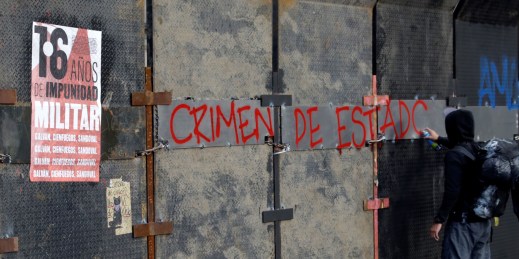
Latin America is trending toward more militarized security strategies, a trend that could be consolidated by elections across the region in the coming 18 months. As one consequence of civilian governments and publics embracing hard-line security approaches, the region’s militaries could become more powerful and politically influential.
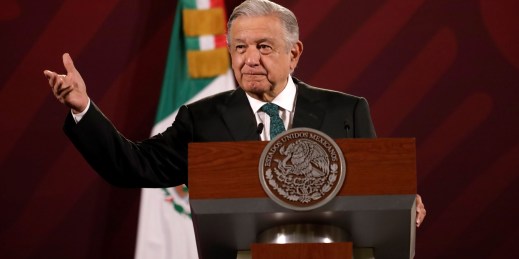
Mexico has had a surprisingly good year, with a promising outlook ahead that contrasts starkly with many of its peers, both in Latin America and around the world. But Mexico is no stranger to being in the economic spotlight, raising questions about whether this so-called Mexican Moment is poised to last longer than just a moment.
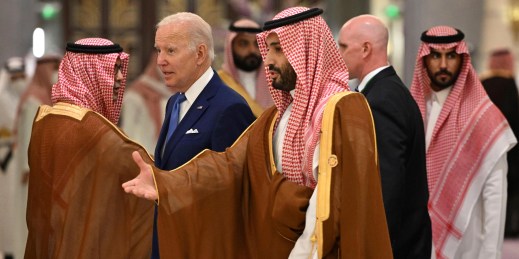
Back in March, Saudi Arabia reportedly offered to join the Abraham Accords in exchange for the transfer of U.S. civil nuclear technology, among other things. Washington is reluctant to do so, as that technology could be used to develop nuclear weapons. But a nuclear-armed Saudi Arabia should not be particularly concerning for Washington.
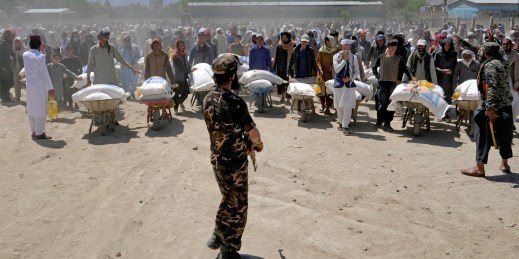
The Wagner Group’s headline-making activity in Ukraine and recent attempted rebellion in Russia has brought renewed attention to the role of private military and security companies, or PMSCs, in contemporary conflicts. One under-explored facet of the rise of PMSCs is the effect of their proliferation on the delivery of humanitarian aid.
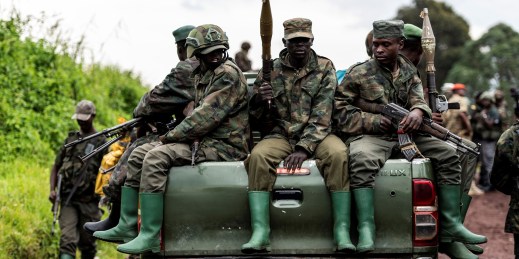
Nearly 1 million people have been displaced in eastern Congo since rebels from the March 23 Movement, or M23, reemerged in early 2022 after having been dormant for almost a decade. Since then, the insurgency has caused humanitarian needs in the area to skyrocket, while raising thorny questions about regional stability.
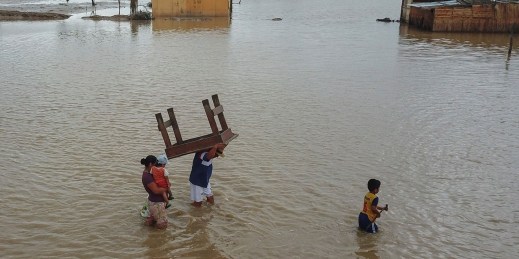
Peru has been struggling to regain its footing after facing a multitude of political crises and taking a devastating hit from the COVID-19 pandemic. Now the country is bracing for yet another blow with the potential to inflict more serious damage and worsen political tensions: the climate phenomenon known as El Nino.
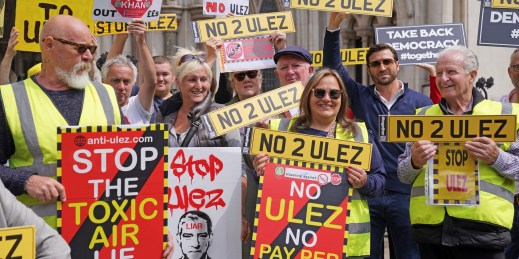
The need for European states to reduce their dependence on fossil fuels has never seemed greater, and opinion polls indicate firm support for the measures needed to do so. Yet growing signs of disquiet among some voters over the tradeoffs needed to make green policies work signals that public support cannot be taken for granted.
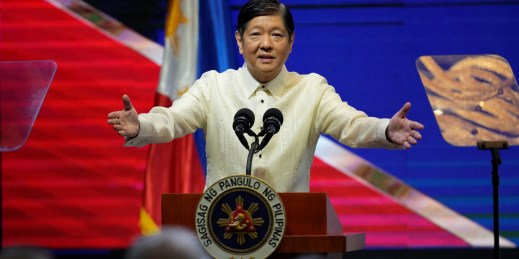
Just over a year ago, Philippine President Ferdinand Marcos took office, marking a stunning comeback for his family’s notorious dynasty and triggering concerns among opposition figures and many foreign observers. But over his first year in office, Marcos has embraced a politics of prudence, adopting a traditional policy outlook.
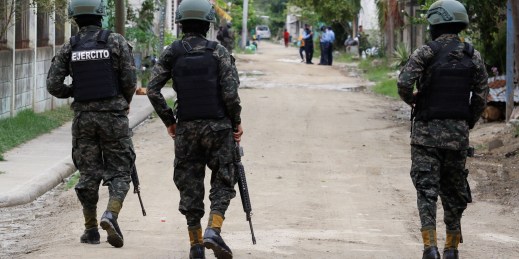
Upon taking office in January 2022, Honduran President Xiomara Castro promised to demilitarize public security. Instead, after a series of high-profile episodes of violence, she has mimicked the rhetoric and methods employed by Salvadoran President Nayib Bukele, hoping to exploit its apparent efficacy, but especially its popular appeal.
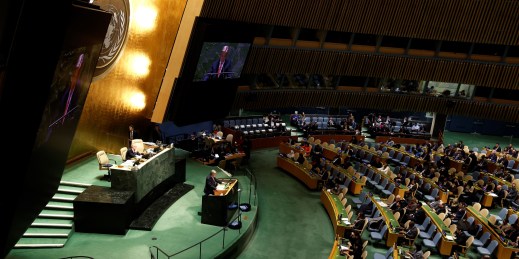
The U.N. General Assembly just took a small step toward strengthening its role in international peace and security. The assembly typically plays second fiddle to the Security Council on such issues. But with the council embroiled in debates between Russia and the West, many U.N. members feel the assembly should compensate for its flaws.
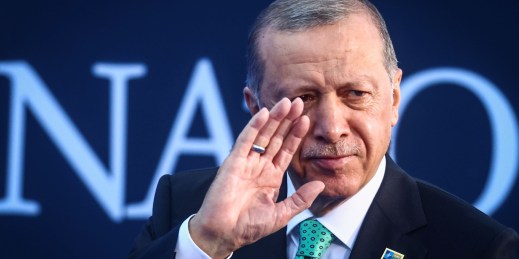
Turkish President Recep Tayyip Erdogan’s foreign policy moves almost always have a domestic angle, and his pivot back to the West since his reelection in May, as well as his return to orthodox economic policies, could all be aimed at one goal: winning favor with urban voters ahead of the 2024 municipal elections.
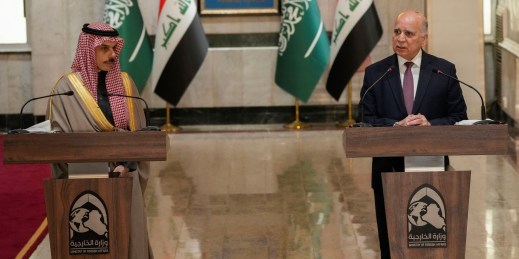
Over the past two decades, Iran has used its political influence in Baghdad to consolidate a strong position in various sectors of Iraq’s economy. Now competition for investments in Iraq, and the economic influence that goes along with them, has become increasingly intense, with Saudi Arabia and the UAE leading the charge.

FIFA has gone to great lengths to keep soccer and politics separate, and in the past has applied the same apolitical facade to both the men’s and women’s game. In recent years, though, and especially following the 2019 edition of the tournament, the Women’s World Cup has become an event in which politics is a part of its brand.
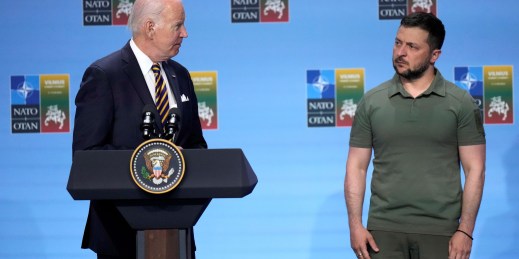
With NATO membership for Kyiv off the table in the immediate term, some are calling for an alternative mechanism dubbed the “Israel Model,” in which the U.S. would provide Ukraine with the kind of security it provides Israel so it can defend itself after the war ends. But there are several reasons why that approach is inappropriate.
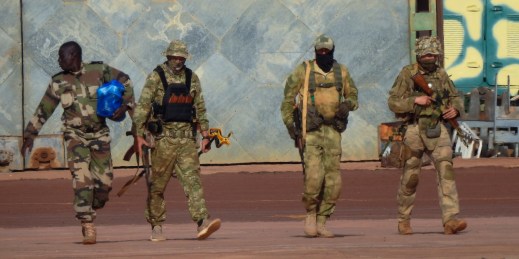
The failed rebellion by Yevgeny Prigozhin in late June has created uncertainty about the Wagner Group’s future operations in Africa. U.S. and European policymakers should focus on making Wagner unviable should it try to regroup from the debacle back home, while building an approach to do the same when Russia tries again with other outfits.
